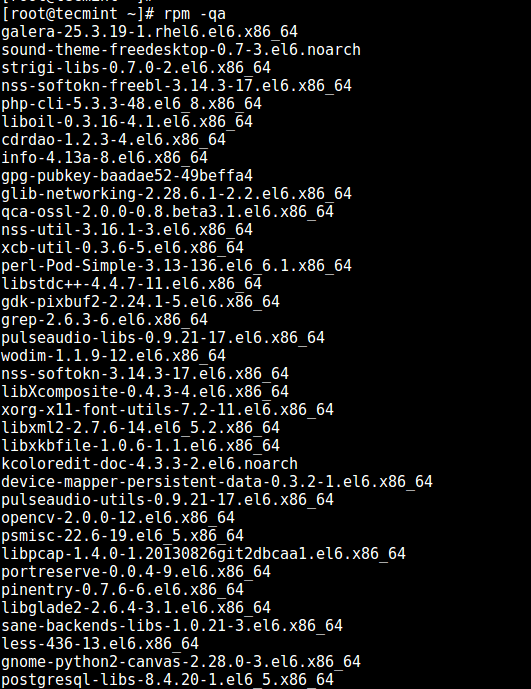One of the several duties of a system administrator is to install and manage software on a computer system-Linux in this case and in order keep track of installed/available software packages on your system, you can learn, and/or keep in mind a few quick commands.
In this article, we will explain how to list all installed rpm packages on CentOS, RHEL and Fedora distributions using four different ways.
1. Using RPM Package Manager
RPM (RPM Package Manager) formerly known as Red-Hat Package Manager is an open source, low-level package manager, which runs on Red Hat Enterprise Linux (RHEL) as well as other Linux such as CentOS, Fedora and UNIX systems.
You can compare it to DPKG Package Manager, the default packaging system for Debian and it’s derivatives such as Ubuntu, Kali Linux etc.
The following command will print a list of all installed packages on your Linux system, the flag
-q meaning query and -a enables listing of all installed packages:2. Using YUM Package Manager
YUM (Yellowdog Updater, Modified) is an interactive, front-end rpm based, package manager.
You can use the yum command below to list all installed packages on your system, one advantage with this method is, it includes the repository from which a package was installed:
▬▬▬▬▬▬▬▬▬▬▬▬▬▬▬▬▬▬▬▬▬▬▬▬▬▬▬▬▬
► Read more: http://adf.ly/1n5ZG4
▬▬▬▬▬▬▬▬▬▬▬▬▬▬▬▬▬▬▬▬▬▬▬▬▬▬▬▬▬

No comments:
Post a Comment